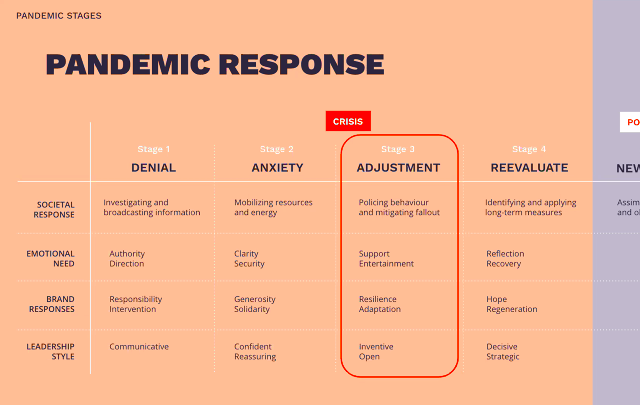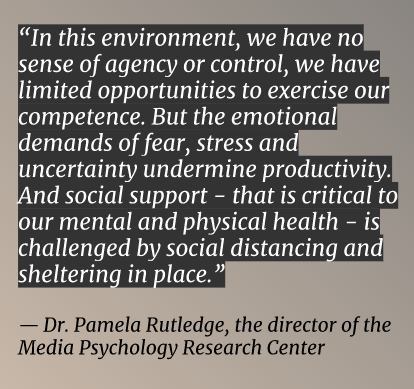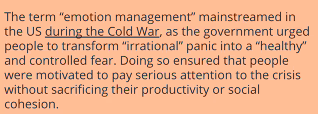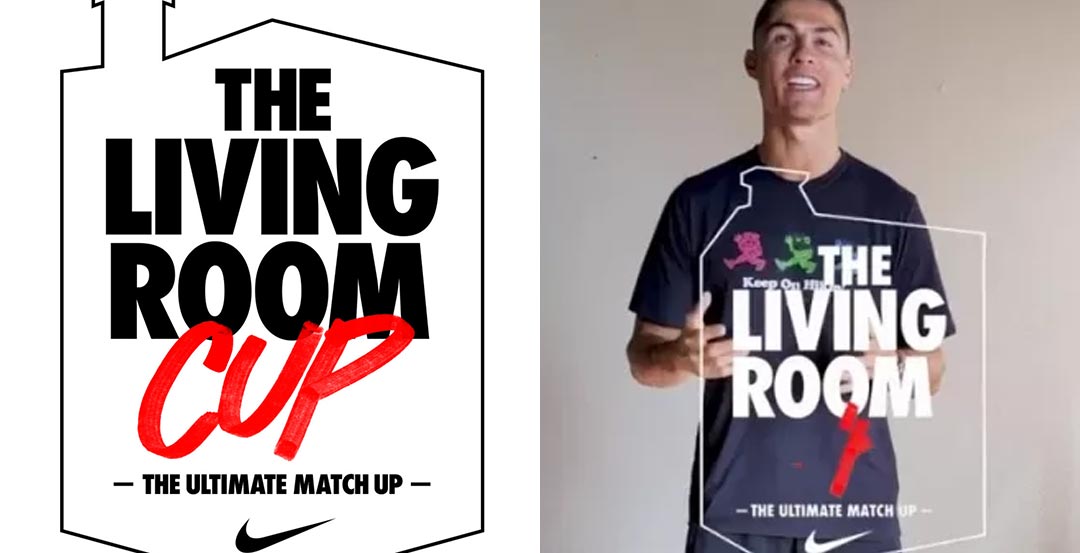Another useful morning of insights - learning about what comes next in terms of pandemic culture as we start to adjust.
A little thread summarising what I learnt in case it is useful - prepare to get nerdy https://abs.twimg.com/emoji/v2/... draggable="false" alt="🤓" title="Nerd face" aria-label="Emoji: Nerd face">
https://abs.twimg.com/emoji/v2/... draggable="false" alt="🤓" title="Nerd face" aria-label="Emoji: Nerd face"> https://abs.twimg.com/emoji/v2/... draggable="false" alt="🤓" title="Nerd face" aria-label="Emoji: Nerd face">
https://abs.twimg.com/emoji/v2/... draggable="false" alt="🤓" title="Nerd face" aria-label="Emoji: Nerd face"> https://abs.twimg.com/emoji/v2/... draggable="false" alt="🤓" title="Nerd face" aria-label="Emoji: Nerd face">
https://abs.twimg.com/emoji/v2/... draggable="false" alt="🤓" title="Nerd face" aria-label="Emoji: Nerd face">
A little thread summarising what I learnt in case it is useful - prepare to get nerdy
So.
How ARE things are likely to develop with Covid-19? What trends might we see?
Well the first thing to note is that whilst countries like the UK, Europe and US remain in the anxiety phase of a crisis - we are starting to see signs of movement into the Adjustment Stage.
How ARE things are likely to develop with Covid-19? What trends might we see?
Well the first thing to note is that whilst countries like the UK, Europe and US remain in the anxiety phase of a crisis - we are starting to see signs of movement into the Adjustment Stage.
Now, in regular daily life, adjustment is a common enough cognitive activity.
If you start a new job, if you have a baby, if you break up with a partner, or move house - you& #39;ll have adapted to new stress and adjusted.
But in many cases this is a conscious and welcomed phase.
If you start a new job, if you have a baby, if you break up with a partner, or move house - you& #39;ll have adapted to new stress and adjusted.
But in many cases this is a conscious and welcomed phase.
Not so in a pandemic.
Whilst we are usually guided by our intuition and morals, as well as our social groups and support systems, adapting to change in a crisis is a little tricksier.
Why? because adjusting necessitates the sacrifice of familiarity.
Whilst we are usually guided by our intuition and morals, as well as our social groups and support systems, adapting to change in a crisis is a little tricksier.
Why? because adjusting necessitates the sacrifice of familiarity.
Lifestyles and routines are disrupted.
There is no defined end.
We remain on the anxiety continuum.
But we are also starting to realise that we can& #39;t exist in this heightened state of anxiety all the time. We& #39;re beginning to see people try to adapt.
There is no defined end.
We remain on the anxiety continuum.
But we are also starting to realise that we can& #39;t exist in this heightened state of anxiety all the time. We& #39;re beginning to see people try to adapt.
Thing is, everyone adapts at different rates.
And even as individuals grow used to the situation, society can still come under strain.
After all, consider how gov restrictions impact people differently, and in unequal ways - as was so aptly pointed out by Emily Maitlis.
And even as individuals grow used to the situation, society can still come under strain.
After all, consider how gov restrictions impact people differently, and in unequal ways - as was so aptly pointed out by Emily Maitlis.
So we won& #39;t just suddenly all pop out of the anxiety stage into feeling well adjusted and chill about everything.
We& #39;re still going to be processing for a while yet, particularly as the economic impact starts to really be felt in the long term.
We& #39;re still going to be processing for a while yet, particularly as the economic impact starts to really be felt in the long term.
This is quite crucial - being able to think further ahead than the immediate catastrophe is central to the adjustment stage.
It& #39;s all about people trying to mitigate their prolonged anxieties, but what& #39;s tricky about Covid-19 is that almost all the usual routes are closed off.
It& #39;s all about people trying to mitigate their prolonged anxieties, but what& #39;s tricky about Covid-19 is that almost all the usual routes are closed off.
PLUS the Anxiety Stage was defined by a desire to feel in control, to find a sense of normalcy and security in a time of uncertainty.
The Adjustment Stage is similarly defined by a very human emotion:
BOREDOM.
The Adjustment Stage is similarly defined by a very human emotion:
BOREDOM.
Yup, surprise, surprise, isolating and staying indoors are not the most thrilling things to do.
But boredom has a very important role in changing how we think and feel and behave.
It& #39;s what interrupts our anxious minds, creating new bandwidth and an appetite for change.
But boredom has a very important role in changing how we think and feel and behave.
It& #39;s what interrupts our anxious minds, creating new bandwidth and an appetite for change.
It can be positive - we have, after all, been forced into a period of experimentation and now could be the moment where you get creative and productive and do all the doing in order to stop being bored of the same four walls.
It can also trigger people into taking risks to try and make them "unbored".
Things like going to the park with mates.
It might look like an asshole move, but it could also be a response to anxiety, making them feel more in control of themselves and less dangerously bored.
Things like going to the park with mates.
It might look like an asshole move, but it could also be a response to anxiety, making them feel more in control of themselves and less dangerously bored.
Boredom is a big one for brands to think about.
And so is another emotional need: resilience.
As we start to adjust, we& #39;re going to go from a tide of anxiety, to an ever fluctuating range of extreme emotions - deep loneliness, crawling frustration, glinting appreciation.
And so is another emotional need: resilience.
As we start to adjust, we& #39;re going to go from a tide of anxiety, to an ever fluctuating range of extreme emotions - deep loneliness, crawling frustration, glinting appreciation.
Resilience helps us navigate all that - helps us accept how we feel and what we can / cannot control and is essential both individually and collectively to facing down adversity.
I made a note here about checking out the Susan David podcast "Checking In".
She& #39;s a psychologist at Harvard Medical School and the podcast talks about how we can all cope with our heightened emotions rn.
Really positive listen: https://www.stitcher.com/podcast/ted/checking-in-with-susan-david">https://www.stitcher.com/podcast/t...
She& #39;s a psychologist at Harvard Medical School and the podcast talks about how we can all cope with our heightened emotions rn.
Really positive listen: https://www.stitcher.com/podcast/ted/checking-in-with-susan-david">https://www.stitcher.com/podcast/t...
I also then found this:
https://www.happinesslab.fm/
The">https://www.happinesslab.fm/">... Happiness Lab has done a "coronavirus bonus" series that looks at loneliness in isolation, coaching yourself through a crisis and strategies to get through the pandemic together.
https://www.happinesslab.fm/
The">https://www.happinesslab.fm/">... Happiness Lab has done a "coronavirus bonus" series that looks at loneliness in isolation, coaching yourself through a crisis and strategies to get through the pandemic together.
Another interesting take out that I& #39;ve gone on to read some more about is "Emotion Management".
It really boils down to the idea of taking control of yourself and your emotions so they don& #39;t control you (Plato& #39;s allegory of the chariot and the two horses springs to mind).
It really boils down to the idea of taking control of yourself and your emotions so they don& #39;t control you (Plato& #39;s allegory of the chariot and the two horses springs to mind).
Key: it& #39;s not about turning emotions on and off.
It& #39;s not about squashing negative emotions or "choosing" to be happy.
It& #39;s about choosing our responses to our emotions and creating a space in which we can reference our commitments and values, letting us take responsibility.
It& #39;s not about squashing negative emotions or "choosing" to be happy.
It& #39;s about choosing our responses to our emotions and creating a space in which we can reference our commitments and values, letting us take responsibility.
Right then, so where do brands and businesses come in?
A lot of recommendations from anxiety stage are still very much important - encouraging routines and helping create normalcy are essential.
BUT as we begin to adjust there’s a new level of how brands can step in.
A lot of recommendations from anxiety stage are still very much important - encouraging routines and helping create normalcy are essential.
BUT as we begin to adjust there’s a new level of how brands can step in.
Also everythings kinda comes back to boredom - it’s a mixed bag of feelings and it’s a critical state of mind to be aware of as a brand.
Not only because people will get bored of your brand and your messaging.
But also because people will rebel if they get bored.
Not only because people will get bored of your brand and your messaging.
But also because people will rebel if they get bored.
You can& #39;t just go in being zany or dolling out electric shocks etc.
It’s about stimulation in the right way.
You can’t be repetitive. You can’t be constant.
You can learn a lot by looking at the UX design for some of the stickiest / most addictive apps and games.
It’s about stimulation in the right way.
You can’t be repetitive. You can’t be constant.
You can learn a lot by looking at the UX design for some of the stickiest / most addictive apps and games.
FOUR BEHAVIOURS FOR BRANDS TO THINK ABOUT.
1) Boredom
2) Resilience
3) Experimentation
4) Divergence
What does this mean? Let& #39;s take a look.
1) Boredom
2) Resilience
3) Experimentation
4) Divergence
What does this mean? Let& #39;s take a look.
1) People are getting bored - so stimulate them regularly.
The branded PSAs are not going cut through as we start to adjust. You need to keep finding new stimulus and adjust.
eg. Nike& #39;s Living Room Cup. It provides competition and excitement, as well as variety and purpose.
The branded PSAs are not going cut through as we start to adjust. You need to keep finding new stimulus and adjust.
eg. Nike& #39;s Living Room Cup. It provides competition and excitement, as well as variety and purpose.
These challenges still refresh the "stay in doors" message but they disguise the PSA.
It& #39;s not STAY INSIDE. It& #39;s PLAY INSIDE.
And it uses celebrity in a really smart way - without pretending Ronaldo is suddenly a contagion expert, they use him to spread an essential message.
It& #39;s not STAY INSIDE. It& #39;s PLAY INSIDE.
And it uses celebrity in a really smart way - without pretending Ronaldo is suddenly a contagion expert, they use him to spread an essential message.
2) People’s spirits may weaken - so brands need to support resilience
People are in a forced period of restraint. We& #39;re relying on people to self regulate (which is hard). People are stressed.
Government and expert language so far has been similar to war messaging.
People are in a forced period of restraint. We& #39;re relying on people to self regulate (which is hard). People are stressed.
Government and expert language so far has been similar to war messaging.
Brands need to play a sympathetic but slightly different role:
- emphasising value and benefits over “wants”
- striving to inspire strength and resilience rather than critiquing or suggesting there’s a “lack” in a person
- offering a rallying cry and solidarity.
- emphasising value and benefits over “wants”
- striving to inspire strength and resilience rather than critiquing or suggesting there’s a “lack” in a person
- offering a rallying cry and solidarity.
Again, Nike is doing this super well with their "Play for the World" campaign - there& #39;s a sense of purpose and solidarity.
Other brands are too - including banks, breweries and fashion and furniture outlets. Some interesting examples of creative work: https://www.thedrum.com/news/2020/03/24/creative-works-what-brands-are-doing-the-coronavirus-pandemic">https://www.thedrum.com/news/2020...
Other brands are too - including banks, breweries and fashion and furniture outlets. Some interesting examples of creative work: https://www.thedrum.com/news/2020/03/24/creative-works-what-brands-are-doing-the-coronavirus-pandemic">https://www.thedrum.com/news/2020...
3) People will experiment - so brands need to demonstrate "better".
What does this mean? Well we know that as people adjust, they& #39;re going to have more bandwidth. This will trigger judgements in their heads, looking at how they’re living and what is optimal for them.
What does this mean? Well we know that as people adjust, they& #39;re going to have more bandwidth. This will trigger judgements in their heads, looking at how they’re living and what is optimal for them.
As people experiment with alternatives, they’ll start to replace old habits by trialling new ones.
So brands have and opportunity if they can DEMONSTRATE how your product is better.
BUT you must have simple, clear and easy messaging - the bandwidth is more, but it’s not full.
So brands have and opportunity if they can DEMONSTRATE how your product is better.
BUT you must have simple, clear and easy messaging - the bandwidth is more, but it’s not full.
NB. Free stuff is not the answer here though. Not on its own.
You may think a simple way to show off your product is to make it free. But right now we& #39;re all overwhelmed by free stuff. It& #39;s a bit of a race to the bottom tbh.
And "free" doesn& #39;t equal a long term relationship.
You may think a simple way to show off your product is to make it free. But right now we& #39;re all overwhelmed by free stuff. It& #39;s a bit of a race to the bottom tbh.
And "free" doesn& #39;t equal a long term relationship.
Brands need to think carefully about habit formation.
If you need people to start buying / paying for your product then you need to go beyond freebies.
Consider competition and ways to foster social commitments etc.
Think about the sticking points.
If you need people to start buying / paying for your product then you need to go beyond freebies.
Consider competition and ways to foster social commitments etc.
Think about the sticking points.
Right now, we& #39;re bored and open to experimentation. There is an opportunity to some degree.
So take a long look at your intentions, make sure your values are visible, and make your messaging very clear and very simple.
So take a long look at your intentions, make sure your values are visible, and make your messaging very clear and very simple.
4) People will diverge - so know your brand& #39;s role
During the adjustment stage, different personalities and mindsets are going to start showing themselves. As we stop being so collectively anxious, brands need to really understand their audience and their needs.
During the adjustment stage, different personalities and mindsets are going to start showing themselves. As we stop being so collectively anxious, brands need to really understand their audience and their needs.
A central part of this is that as people diverge from the collective, brands messaging needs to be really careful not to stigmatise or create further division.
There& #39;s a need for public spirited messaging but in careful and nuanced ways.
There& #39;s a need for public spirited messaging but in careful and nuanced ways.
A couple other big shifts are also worth noting for brands because it& #39;ll impact what people expect in the future too.
Firstly - we& #39;re going to see more and more a shift towards collective responsibility, a desire to see preparedness as a value in brands.
Firstly - we& #39;re going to see more and more a shift towards collective responsibility, a desire to see preparedness as a value in brands.
This will likely play out in spaces where we think about responsible behaviour - the touchless economy, health security, wellness industries.
People will demand new health policies (similar to safety after 9/11), and greater scrutiny of wellness companies (bad news for Goop).
People will demand new health policies (similar to safety after 9/11), and greater scrutiny of wellness companies (bad news for Goop).
Secondly, we& #39;re going to see a return to expertise.
We& #39;re already seeing more attention on credibility as people grapple with the crisis and try to piece together a disordered world.
The pollution of trust since 2016 is being reversed by the pandemic.
We& #39;re already seeing more attention on credibility as people grapple with the crisis and try to piece together a disordered world.
The pollution of trust since 2016 is being reversed by the pandemic.
"Influence" is being tested and reevaluated.
Legacy media is being re-centered.
Conspiracies are being combatted.
People and platforms are way more aware of the consequences of misinformation now and are massively reacting when before they were very laissez faire.
Legacy media is being re-centered.
Conspiracies are being combatted.
People and platforms are way more aware of the consequences of misinformation now and are massively reacting when before they were very laissez faire.
A couple of interesting facts that I liked were also that FICTION is doing super well - particularly pandemic fiction and dystopians.
Why?
Because most of us haven& #39;t survived anything like this before, we& #39;re seeking out sources to help us understand how we think and feel --
Why?
Because most of us haven& #39;t survived anything like this before, we& #39;re seeking out sources to help us understand how we think and feel --
-- fiction allows us to experience a situation and explore our emotions.
It also provides the nice, comforting closure of a dramatic arc, which every day life cannot currently offer us.
It also provides the nice, comforting closure of a dramatic arc, which every day life cannot currently offer us.
ALSO when it comes to trust, working through the private/public divide is essential.
Apparently, people don& #39;t trust governments to fix things alone. Nor do they think businesses can do it by themselves.
BUT seeing private and public partnerships gives them faith.
Apparently, people don& #39;t trust governments to fix things alone. Nor do they think businesses can do it by themselves.
BUT seeing private and public partnerships gives them faith.
An example of this was the WHO working with Whatsapp, which apparently has been very successful in telling the right message, to the right people, in a way that suits them but is also factual, useful and trustworthy.
This is certainly an interesting trend to follow.
This is certainly an interesting trend to follow.
Summary notes:
As we move towards a new phase, there& #39;s a lot brands and businesses can do to to support their audiences but also society as a whole by helping people through their boredom, bolstering their resilience, and drawing meaning out of storytelling.
As we move towards a new phase, there& #39;s a lot brands and businesses can do to to support their audiences but also society as a whole by helping people through their boredom, bolstering their resilience, and drawing meaning out of storytelling.
There are opportunities here - if brands are smart and not opportunistic, if they are led by values and demonstrate innovation.
The trick is to be nimble now, to adapt with people, and think about the role of tech as well.
The trick is to be nimble now, to adapt with people, and think about the role of tech as well.
As individuals change, so do businesses and governments - warming to tech intervention is one of those changes.
There’s going to be debates on tech that are going to be seen with fresh eyes. It might put livelihoods in danger and see more automation.
All things to consider.
There’s going to be debates on tech that are going to be seen with fresh eyes. It might put livelihoods in danger and see more automation.
All things to consider.

 Read on Twitter
Read on Twitter






